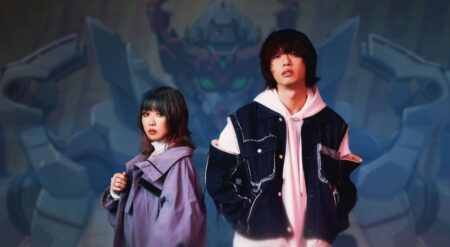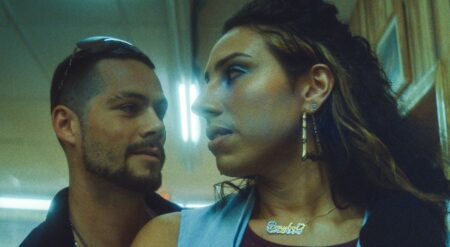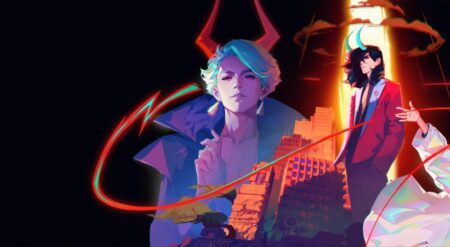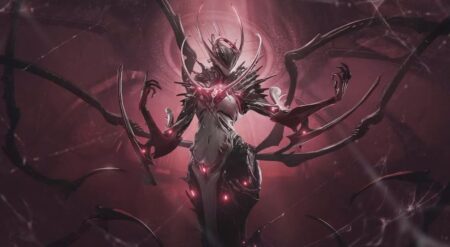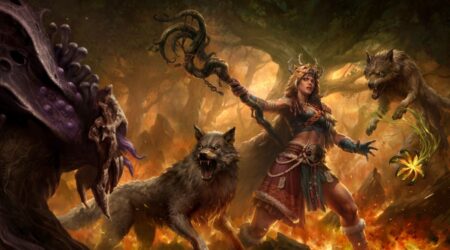
FAB: Breakout is an anthology series set in the world of Max Gadney and Storyworlds’ Fab. Each story uses the same central premise: a rogue 3D printing technology that can print absolutely anything is reshaping the world as we know it. Each story in this fantastic anthology takes a totally different approach tonally, stylistically, and morally. We spoke with three of the book’s authors about what went into their additions to the volume and why they chose to make the theme what they did. Jared Luján wrote “Shifts,” Murewa Ayodele wrote “Look, Ma,” and Ramzee wrote “Cheap Meal.”
Jarred Luján
BUT WHY THO?: I think “Shifts” shocked me the most with its twist ending. It also has a unique tone full of anger and despondency. Why was this the tone you chose to write a story within?
JARRED: I think the FAB machine is something brilliant and intriguing, but, like all machines, it exists in a world that is populated with human beings. When I look at our world, I see a lot of rage and a lot of despondencies, and I wanted to capture that in a way that was grounding. There’s a lot to love in the idea of a FAB machine—but there’s just as much to fear, and I think that’s what I wanted to drive home the most.
BUT WHY THO?: What inspired your entry in FAB: Breakout? Why was “Shifts” the story you wanted to tell?
JARRED: I think it’s mostly been inspired by my real-life experiences in seeing how neighborhoods I hung around became gentrified and taken over. When presented with the idea of a machine that could create anything at low cost and, essentially, crowdsourced, I wondered how the world would react if those same neighborhoods started updating their own homes. That’s where it kind of all started: what happens when the barrio can make itself better on its own terms? I wanted to tell “Shifts” the way Alexey, Sergei, Taylor, and I did because the world of FAB machines is full of wonder—but we shouldn’t ignore its fangs.
BUT WHY THO?: What is the moral of “Shifts?” What lesson for our real-world does it possess?
JARRED: I will defer to the late, great Malcolm X: “If you’re not careful, the newspapers will have you hating the people who are being oppressed and loving the people who are doing the oppressing.”
Murewa Ayodele
BUT WHY THO?: “Look, Ma” is one of the most emotionally intense in the anthology. Of all the wacky and fun ways you could have used the FAB machine, why go for a more somber story?
MUREWA: Oh. Really? Thank you. I’m happy our story came off that way. The opening to work on FAB: Breakout came at a time where my best friend (Dotun, the artist of the story) and I have been struggling to get comic book jobs. It was starting to really get to us. But all my worries and sadness seem to always fade away when I’m on the phone with my sister, who lives a continent away in the UK. We both studied computer science in university, but it still somehow always fascinated us how we could be so far away and yet talk to each other every day. My best Dotun and I also worked on the story together despite living in cities away from each other (like most comic books now). We many times fear that technology would diminish human connection, but I’ve always believed it will bring us closer together. So, we decided to go in that direction for our entry.
BUT WHY THO?: What inspired your entry in FAB: Breakout? Why was “Look, Ma” the story you wanted to tell?
MUREWA: I’m pretty close with my family, especially with my Mom. I also grew up a very sickly child. She was always in the hospital with me. Understanding the sacrifices made, I guess there’s this intense desire to make her proud. I kind of fed off all of that for this story.
BUT WHY THO?: What is the moral of “Look, Ma?” What lesson for our real-world does it possess?
MUREWA: I hope this doesn’t sound pretentious, but as a storyteller, I believe it’s my job, to tell the Truth. If and what the reader learns from this “Truth” is totally up to the reader. So, I think this is a question best answered by the readers.
Ramzee
BUT WHY THO?: “Cheap Meat” is easily one of the wackiest in the anthology. Why did you choose to go totally into left field?
RAMZEE: The story is set after the events of FAB Book One, where the FAB machines have totally revolutionized society, and I really wanted to lean into the absurdity and bonkers energy that such a world would offer.
BUT WHY THO?: What inspired your entry in FAB: Breakout? Why was “Cheap Meal” the story you wanted to tell? What is the moral of “Cheap Meal?” What lesson for our real-world does it possess?
RAMZEE: The inspiration for “Cheap Meal” was to interrogate the riddle, “humanity has created a machine that can end world hunger, homelessness, and lack of resources, so why are there still poor people?” And if this story has a moral, it would be found in a line from Bob Marley’s ‘Redemption Song,’ which goes, “Emancipate yourselves from mental slavery, none but ourselves can free our minds.” In our actual society, we have plenty of resources, but we all live in a system called Capitalism that is about growth. It always wants more and coerces us into playing out roles that serve it instead of each other. The story doesn’t directly preach this but instead shows you the fatalistic cycle that our lead character finds himself in and gives the reader enough to intuit the solution to the problem if they wish to do so.
FAB Breakout Book 1: Mad World is available now via Kindle.

